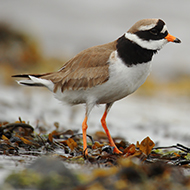CCL rupture surgery reduces lameness, study finds
Surgical management proved more effective than non-surgical methods.
A new study from the Royal Veterinary College (RVC) has revealed that surgical management of cranial cruciate ligament (CCL) ruptures is more effective at reducing lameness than non-surgical treatment.
The findings showed that surgical intervention reduced short-term lameness by a quarter and long-term lameness by a third.
Researchers used causal inference to analyse random samples from 815 dogs with CCL ruptures, aged between 1.5 and 12 years old. The samples were from anonymised clinical records from dogs under first opinion veterinary care in the UK in 2019.
The study was designed to replicate a randomised clinical trial, and explore how different treatment methods impacted the condition.
Researchers took account of the dogs’ age, breed and bodyweight when comparing the outcomes of those which had received surgical and non-surgical management.
Dogs which had had their CCL rupture treated surgically were 25.7 per cent less likely to show short-term lameness three months post-diagnosis than dogs treated non-surgically.
Surgically treated dogs were also 31.7 per cent less likely to show signs of long-term lameness 12 months after diagnosis.
Furthermore, compared to non-surgically treated dogs, surgically treated dogs were 38.9 per cent less likely to have pain relief medication at three months after diagnosis, 34.1 per cent at six months and 32.7 per cent at 12 months.
The findings also showed surgically managed dogs experienced lower long term pain.
The study, led by RVC’s Vet Compass programme and supported by Dogs Trust, aimed to provide a causal link between treatment and outcome, rather than focusing on associations.
Camilla Pegram, Vet Compass PhD student at RVC and the lead author of the study, said: “This study used an exciting new approach that allowed us to determine ‘cause’ rather than being limited to ‘association’. Surgical management for CCL rupture is often considered as providing better outcomes than non-surgical management, but this study now provides an evidence base to support this.
“Whilst surgical management might not always be feasible for some dogs, the findings allow vets to quantify the benefit in their discussions with owners.”
Image © Shutterstock






 The veterinary mental health charity Vetlife is inviting the veterinary community to join it for a sponsored cold-water dip.
The veterinary mental health charity Vetlife is inviting the veterinary community to join it for a sponsored cold-water dip.
